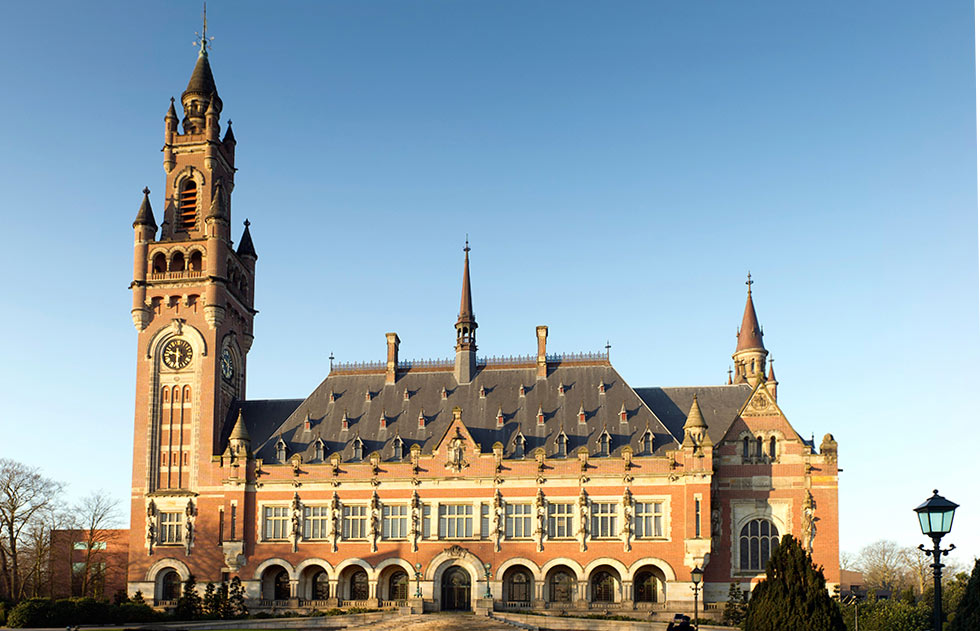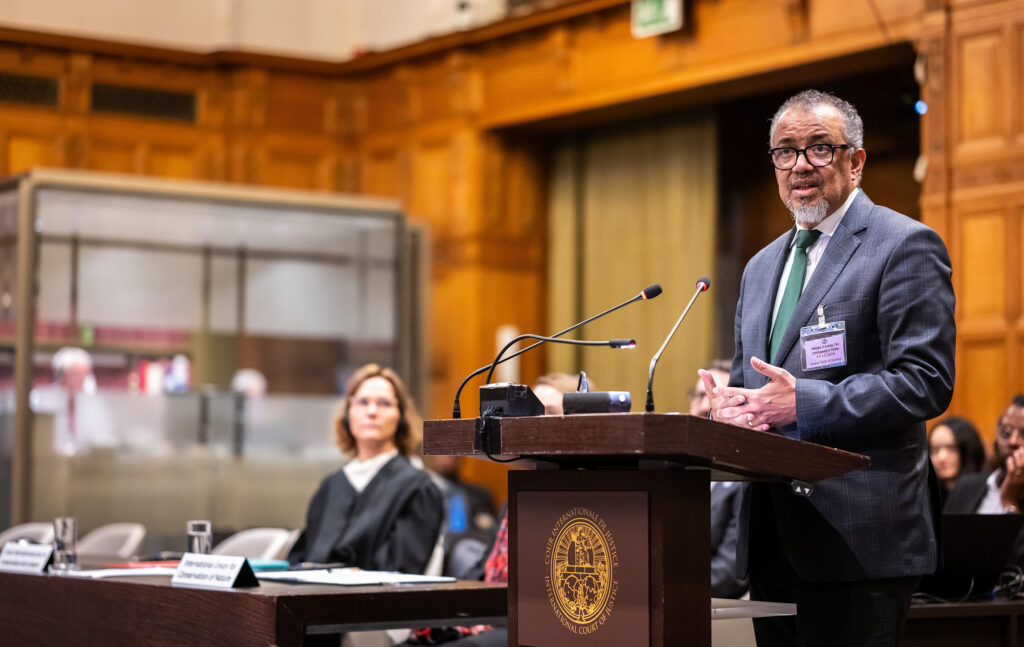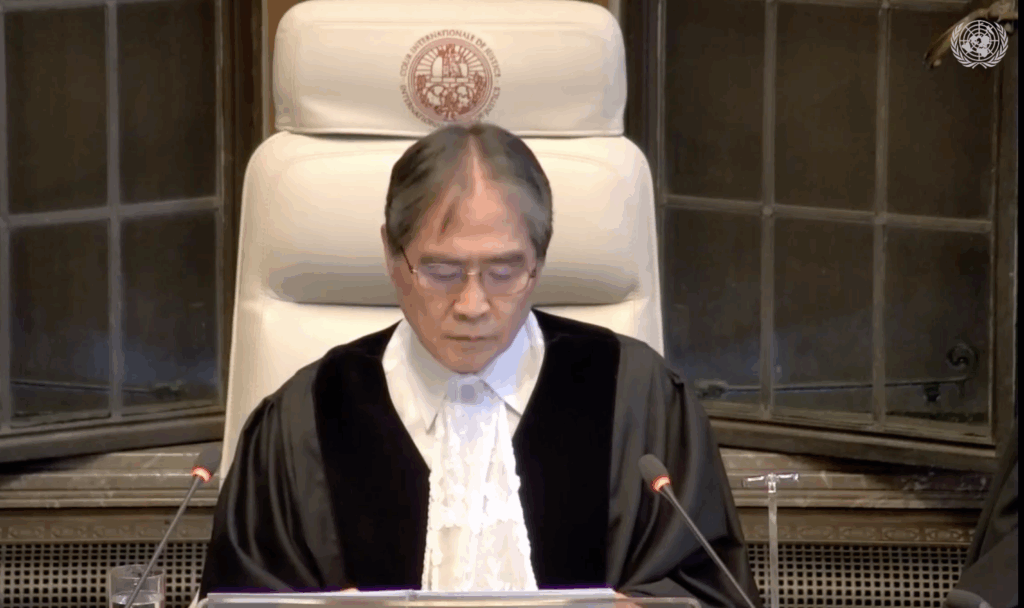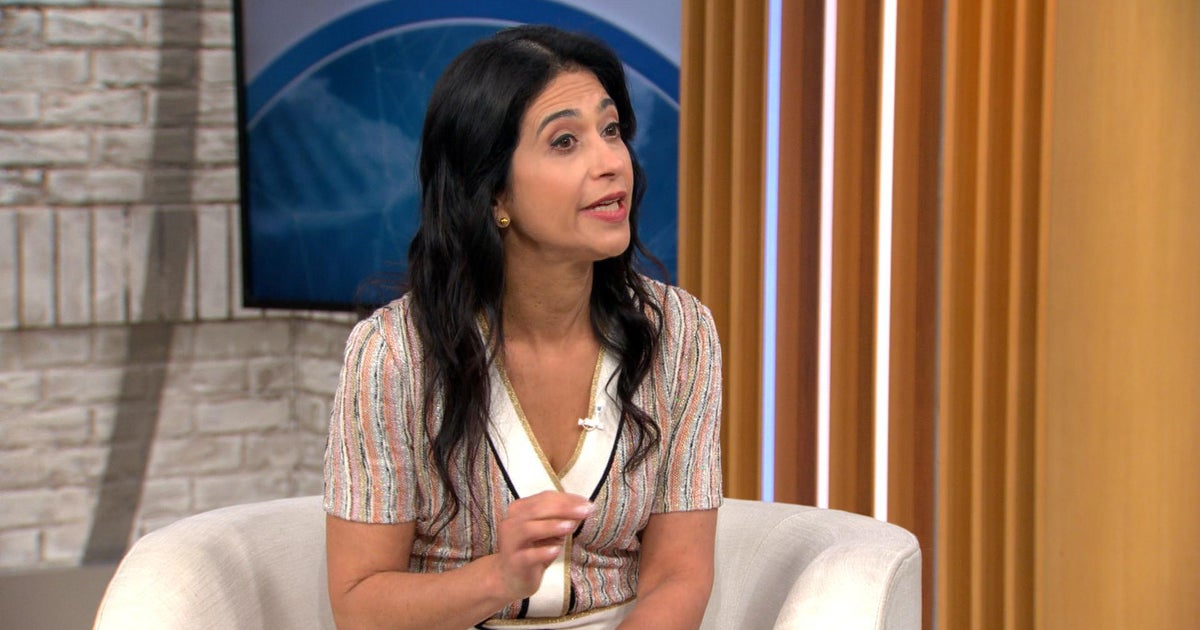 The International Court of Justice (ICJ) headquarters in The Hague, The Netherlands
The International Court of Justice (ICJ) headquarters in The Hague, The NetherlandsThe International Court of Justice (ICJ) ruled on Wednesday that states have a duty to prevent significant harm to the environment from climate change in a landmark advisory opinion.
The court also ruled that the states have a duty to cooperate internationally and called on them to set national climate targets that are of the “highest possible ambition.”
“The court concludes that the duty of states to prevent significant environmental harm applies in the context of climate change, and that this duty forms part of the most directly relevant applicable law concerning the duty to cooperate,” said ICJ President Iwasawa Yuji, who read out the advisory.
The court addressed the issue of human rights and said they cannot be enjoyed without environmental protection. It has asked countries to bear in mind the Paris Agreement target to limit global warming to 1.5° C.
READ HERE: The summary of the #ICJ Advisory Opinion on the Obligations of States in respect of Climate Change. https://t.co/7TWc7ifwfX pic.twitter.com/vVxxwpZpbX
— CIJ_ICJ (@CIJ_ICJ) July 23, 2025
The ICJ’s ruling comes in response to a United Nations (UN) General Assembly resolution led by the small island nation of Vanuatu in the Pacific Ocean, which sought ICJ’s advisory opinion on the obligations of states on climate change, and the legal consequences of these.
This is the first opinion on climate change by the ICJ and it is seen as a landmark in international law as all UN members are automatic signatories of the ICJ.
The ICJ, UN’s principal judicial organ of the UN, has a twofold role: to settle disputes between states and to give advisory opinions on legal questions.
Climate crisis is a health crisis
 WHO Director-General Tedros Adhanom Ghebreyesus speaking at the ICJ in December 2024.
WHO Director-General Tedros Adhanom Ghebreyesus speaking at the ICJ in December 2024.While the ICJ did not explicitly refer to health, Yuji made it clear that countries have to ensure that their Nationally Determined Contributions (NDCs) or the climate targets they set for themselves ought to be ambitious.
“This means that each party has to do its utmost to ensure that the NDCs it puts forward represent its highest possible ambition,” Yuji said. While few countries have included health targets in their NDCs, there is an increasing global push to do so.
The ICJ took the testimonials of a range of stakeholders into account in the run-up to the verdict. In 2024, World Health Organization’s Director-General Dr Tedros Adhanom Ghebreyesus spoke at the ICJ giving his testimonial on how the climate crisis is a health crisis.
In his testimonial, Tedros highlighted how climate change’s health impacts disproportionately affect small island nations like Tuvalu, also in the Pacific Ocean.
“Climate change and extreme weather are wreaking havoc on humans and their health, disrupting societies, economies and development,” Tedros said.
“Without immediate action, climate-related increases in disease prevalence, destruction of health infrastructure and growing societal burdens could overwhelm already overburdened health systems around the world,” he added.
ICJ opens the door for reparations
 President Iwasawa Yuji of the ICJ reading the advisory of the court on climate change.
President Iwasawa Yuji of the ICJ reading the advisory of the court on climate change.Yuji, while acknowledging that the effect of climate change is “severe and far-reaching,” noted that the ICJ was not asked to rule specifically on the issue of compensation or climate damages.
“The court considers that it has been requested to address legal consequences in a general manner, and that it is not called upon to identify the legal responsibility of any particular state or group of states,” he said.
He added that any such request must be looked at on a case by case basis. “Concerning the duty to make reparation, the appropriate nature and quantum of reparations cannot be assessed in the abstract, and depends on the circumstances of a particular case,” he said.
Reparations could be in the form of ecological restoration or reconstruction of damaged infrastructure, the ICJ suggested.
“From deadly heat and toxic air to disease and displacement, the Court’s message is clear – human health is not collateral damage,” said Dr Jeni Miller, executive director at the Global Climate and Health Alliance.
“Health workers and advocates now have powerful legal backing to demand bold, science-based climate action rooted in justice including a just transition away from fossil fuels, for health and the duty to protect life across all ages and borders.”
Harjeet Singh, climate activist and founding director of Satat Sampada Climate Foundation, described the ruling as offering the potential for “a historic level of protection” for communities on the frontlines of climate change.
“It means the suffering, the loss of homes and livelihoods, and the terrifying storms and rising seas that have become our reality can now be met with demands for justice, restitution, and repair. The message is clear: the polluters must pay,” said Singh.
The ICJ advisory comes at a time when the US government is planning to repeal the scientific finding that established greenhouse gases endanger human life by pushing up global temperatures. This finding, established in 2009, gives governments the ability to push for climate action.
However, the Trump administration is on its way to repeal the finding, which now means the US will be at odds with ICJ’s latest advisory.
“Cooperation between states is the very foundation of meaningful international efforts with respect to climate change,” Yuji said.
Image Credits: ICJ, Photo by ICJ/CIJ | Frank van Beek, UN TV.
Combat the infodemic in health information and support health policy reporting from the global South. Our growing network of journalists in Africa, Asia, Geneva and New York connect the dots between regional realities and the big global debates, with evidence-based, open access news and analysis. To make a personal or organisational contribution click here on PayPal.









 English (US) ·
English (US) ·